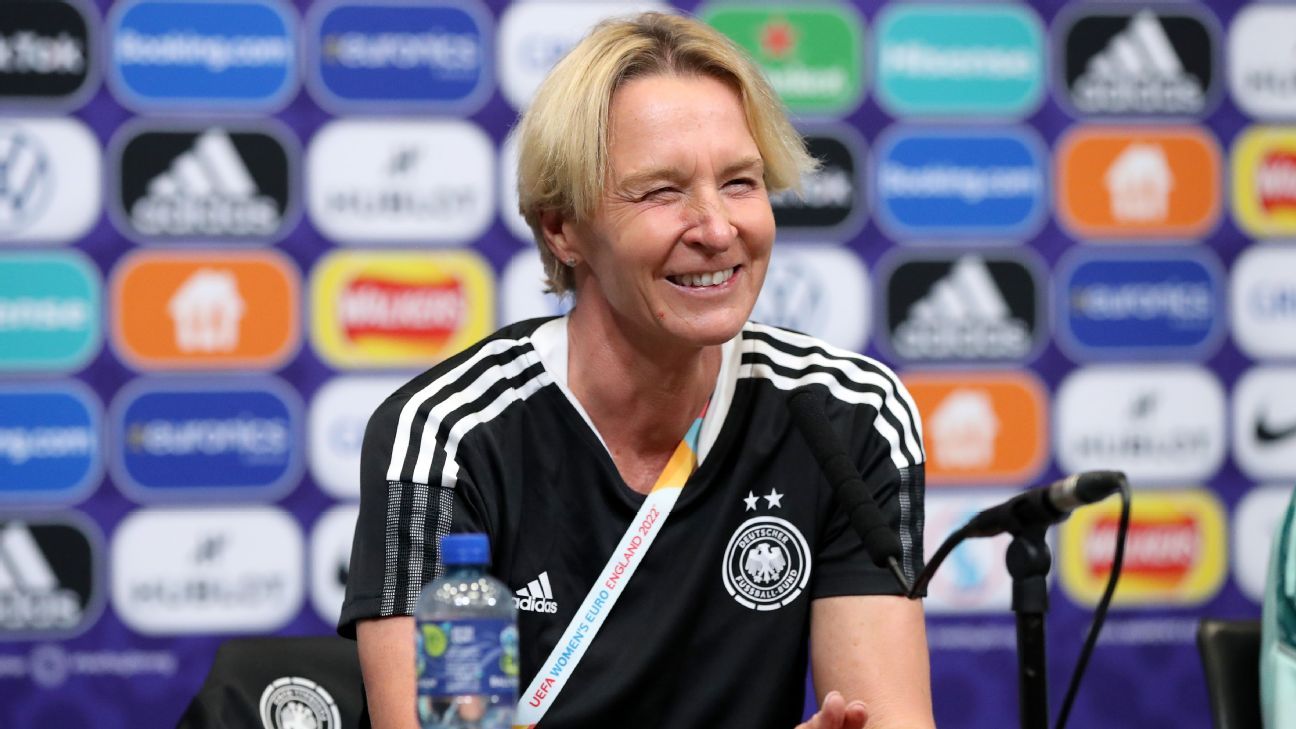Germany manager Martina Voss-Tecklenburg pointed out how much work still has to be done in women’s football ahead of her team’s UEFA Women’s European Championship final against England on Sunday (watch LIVE at 11:30 a.m. ET on ESPN and ESPN+).
For many it has been easy to get caught up in the soaring crowd and broadcast numbers for the tournament but even for eight-time winners, Germany, the project is nowhere near finished.
– Lawson: Lena Oberdorf key to Germany’s success
– McNamee: Alex Popp’s scoring sees Germany into final
– Need ESPN? Sign up & get instant access
“We can only really win — no matter if that’s in Germany, Europe or England — if we do it in a sustainable way,” Voss-Tecklenburg said. “If [this tournament] is not only a single event, with the world watching and being excited about it. But something has to stay, stick. And it has to be a proper chance in every country to make the next steps in women’s football. And if not now — when?”
As one of the most dominant nations in football, it would be easy to assume that conditions in Germany are good but the both the national team and domestic league (Frauen-Bundesliga) struggle in terms of engagement.
With most teams in the Bundesliga not offering a full time environment, it’s little surprise to see the national team full populated by VfL Wolfsburg and Bayern Munich players who are full time footballers.
Although there was great disappointment when Germany, as holders, were knocked out of their home World Cup in 2011 at the quarterfinal stage, the greater loss was the sport failing to fully take root in a country that boasts striking participation numbers.
Just like so many other football mad countries in the world, the women’s game continues to face uphill struggles despite the relative good health German teams have enjoyed in the Women’s Champions League.
“We want more equality of talents, better stadia, we want more spectators, we want more TV time, different kick-off times, a more attractive league,” Voss-Tecklenburg added.
“We want to make the next steps and I hope the sport in general will have a bigger importance in schools and education and politics.”
The plea isn’t a new one and it’s one that the players and coach often bring up but with fans around the world having shown a deeper interest in their national teams, as we saw during the record-breaking 2019 World Cup, there is really no greater juncture for the sport to enjoy a boom.
Not just in terms of crowd and participation numbers but in investment to grow the game and help all areas from grassroots to the elite to medical services and support staff and open up pathways for women in the sport. As Voss-Tecklenburg asked, if not now, then when?
